by chandiniann | Dec 26, 2023 | Interesting Reads

Ever felt like you’re in a room full of people, yet somehow alone? We’ve all been there. Those moments when it seems like people and the universe are tuned into a different frequency. Here’s my take on dealing with those times:
Sink into Solitude
When it feels like the world’s looking past you, take a breather. Embrace the quiet and get to know yourself a bit better. Sometimes the most profound discoveries happen in these silent spaces. I am trying too!
Champion Your Wins, Big or Small
Amid the indifference, relish the small victories – especially those often overlooked. Whether it’s reaching a personal milestone, having given yourself a little extra care, or acing a creative project, take a moment to acknowledge your efforts. You deserve it, even if the world seems unaffected.
Nature’s Whisper
When people seem distant, nature’s always ready to chat. Take a stroll, listen to the breeze, catch a sunset, or play with the community animals. There’s something comforting about the unspoken language of the great outdoors.
Speak Your Truth Through Expression
When silence reigns, turn it into your canvas. Express yourself through art, words, or whatever feels right. Share it with the world, even if applause isn’t in the cards. Your voice deserves to be heard, whether it echoes in a canyon or a crowded room. Am doing that right now!
Be Your Ally
In the face of neglect, be kind to yourself. We all have moments of feeling invisible. Remind yourself that you’re not alone in this. Give yourself a little pep talk – you’re worth it.
So, when the universe seems to be on mute, remember there’s something special in those quiet moments – a chance for personal growth, self-discovery, and a rekindling of your inner light. I am not saying that this will work like magic – but heck, it’s worth a try and we owe it to ourselves.

by chandiniann | Dec 14, 2023 | Interesting Reads

Image Courtesy: Adobe Stock
Starting Off
In the evolving landscape of personal and professional development, the concept of Emotional Intelligence (EI) has garnered significant attention. However, common misconceptions prevail – often associating EI with being nice all the time and as an absence of ambition. This blog aims to unravel the layers of EI, exploring why it’s not about always being nice and certainly not incompatible with ambition or the desire for financial success.
Understanding Emotional Intelligence
Emotional Intelligence encompasses a spectrum of skills, including self-awareness, self-regulation, empathy, motivation, and social skills. Contrary to the misconception, it’s not about suppressing personal ambitions or adopting a ‘nice at all times’ facade. Instead, it involves recognizing and managing emotions effectively in oneself and others.
Realistic Assessment of Situations
EI involves a realistic assessment of situations, acknowledging both positive and challenging emotions. It’s about navigating through various scenarios with emotional balance, understanding that expressing genuine feelings, even if they aren’t always ‘nice,’ is a part of authentic human interaction.
Ambition and Drive
One of the critical aspects of EI is channeling ambition and drive constructively. It’s not about downplaying one’s aspirations but understanding how to handle the associated emotions. Ambition becomes a powerful force when coupled with emotional awareness, fostering resilience, adaptability, and effective collaboration.
Assertion Not Aggression
EI emphasizes assertion over aggression. Being assertive involves expressing one’s needs, opinions, and feelings openly and respectfully, without undermining others. It’s a skill that allows individuals to stand firm in their beliefs while maintaining healthy relationships, contradicting the notion that EI equates to constant niceness.
Handling Conflicts and Criticism
True emotional intelligence is evident in how one handles conflicts and criticism. It’s not about avoiding disagreements but navigating them with empathy and effective communication. Constructive criticism is embraced as a growth opportunity, reflecting a nuanced understanding of emotions.
Financial Success and Emotional Intelligence
Contrary to the belief that prioritizing financial success contradicts emotional intelligence, the two can complement each other. Financially successful individuals with high EI can navigate the complexities of the professional world, foster meaningful relationships, and lead with empathy and resilience.
Finally
In essence, Emotional Intelligence is a multifaceted skill set that goes beyond the simplicity of always being nice. Understanding the true essence of EI allows individuals to lead more fulfilling lives, harmonizing ambition with empathy and success with emotional intelligence. Connect with me to explore how EI can elevate your personal and professional journey.
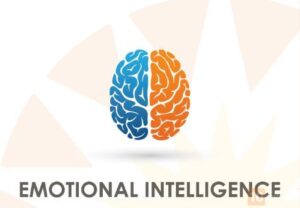
Image Courtesy: 10Times.com
by chandiniann | Dec 13, 2023 | Interesting Reads

The coalescence of content creation and emotional intelligence is critical for success in today’s scenario involving digital twins and geospatial technologies. How? Read on…
Digital Twins and Geospatial Tech – Elevated Through Content and Nurturing Emotions
– Simplifying Documentation
As a content creator, my role involves serving as a guide through the complex terrain of digital twins, excelling in transforming intricate technical details into user-friendly documentation. I specialize in making complicated ideas easy to understand, ensuring that readers easily comprehend these complex technologies.
– Real-World Impact
In my role as a content editor, I go beyond mere documentation, presenting stories that offer tangible examples of digital twins and geospatial technology. I achieve this by presenting compelling case studies that connect technicalities with everyday situations, making these technological innovations accessible, familiar, and comprehensible.
– Thought Leadership
I use content to establish you as a thought leader in the realms of digital twins and geospatial tech. Exploring industry trends and innovations, I aim to keep your audience informed and engaged, building your credibility and fostering a passionate community. If you need high-quality content for blogs, articles, or website material in this field or others, I’ve got you covered.
Enhancing with Emotional Intelligence
Emotional Intelligence is pivotal in customer support, UX design, stakeholder relationships, and change management within both digital twins and geospatial tech. As a certified Emotional Intelligence practitioner and trainer, I am your go-to person to enhance these crucial aspects.
– Elevating Customer Support and Training
Professionals attuned to user emotions provide empathetic and effective support, contributing to positive user experiences and perceptions of both digital twins and geospatial technologies.
– Shaping User-Centric UX Design
Emotional intelligence becomes pivotal in UX design, ensuring interfaces are intuitive and considerate of users’ emotions. This focus on user experience seamlessly integrates both technologies across various sectors.
– Navigating Stakeholder Relationships
Navigating complex discussions and fostering collaboration in digital twins and geospatial projects requires emotional intelligence. This involves understanding diverse perspectives and engaging stakeholders effectively.
– Facilitating Change Management
Emotional intelligence ensures a smooth transition to new tools and processes, understanding and addressing the emotions associated with change. This skill ensures teams adapt seamlessly to advancements in both digital twin and geospatial tech realms.
At the core of success in the digital twins and geospatial tech realms is the synergy between content creation and emotional intelligence. I act as your friendly guide, unraveling intricate technical details into easily digestible content. Meanwhile, my emphasis on emotional intelligence navigates the human dimensions of technology. It’s not merely about codes and algorithms – it’s about enhancing human experiences. Connect with me to weave these threads seamlessly into your narrative of success!

by chandiniann | Nov 23, 2023 | Interesting Reads
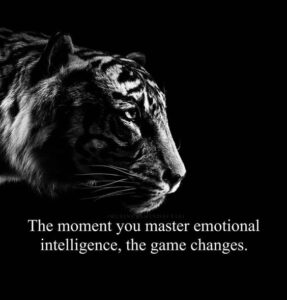
Image Courtesy: Pinterest
In the realm of self-improvement, there’s a less-explored avenue—the journey of understanding and harnessing emotional intelligence. Though the concept isn’t foreign, many unintentionally avoid delving into it, possibly due to unfamiliarity or discomfort. With this blog, I delve into the reasons behind this evasion, encouraging you to consider a journey that leads not only to self-discovery but also to a more fulfilling life.
The Comfort of Familiarity
Humans are creatures of habit, seeking solace in the familiar terrain of our comfort zones. Exploring emotional intelligence can be like setting sail into uncharted waters, and the allure of staying anchored in what we know often keeps us from venturing into this transformative journey.
The Fear of the Unknown
The depths of our emotions can be as vast and unexplored as the cosmos, and the fear of what lies beneath can be paralyzing. It’s not uncommon to shy away from emotions, choosing the safety of surface-level living over the potentially tumultuous sea of feelings waiting to be uncovered.
Societal Stigmas
In a world that often celebrates stoicism and dismisses emotional vulnerability as a sign of weakness, there exists a silent societal pressure to conform to these norms. The fear of judgment and the need to maintain a façade can lead us to suppress, rather than explore, our emotional intelligence.
Instant Gratification Culture
In a society accustomed to instant results and quick fixes, the journey of emotional intelligence may seem like a slow burn. The allure of immediate gratification from external sources can overshadow the profound, but gradual, rewards that come from understanding and navigating our own emotions.
Unmasking Vulnerability
Exploring emotional intelligence requires a willingness to embrace vulnerability, a trait often perceived as a chink in our armor. The reluctance to expose ourselves to the raw, unfiltered aspects of our emotions can deter us from the very growth and resilience that lie on the other side.
And Finally…
While the reasons to evade the exploration of emotional intelligence may be myriad, the untapped potential within each of us remains limitless. It’s a call to shed the fear of the unknown, break free from the shackles of societal expectations, and embark on a journey of self-discovery that promises not just heightened emotional intelligence but a more authentic and fulfilling life. So, why run away when the magic of your emotions awaits? The uncharted territory is where the true adventure begins – are you weak or afraid to begin?
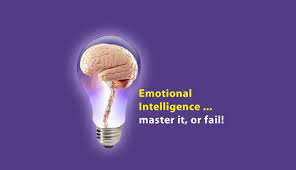
Image Courtesy: middleeast-business.com
by chandiniann | Nov 22, 2023 | Interesting Reads
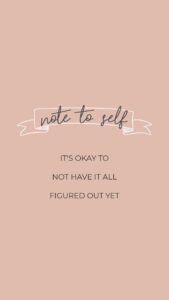
Image Courtesy: cufflovesm.live
How the hell do you know??
Each thread of the intricate fabric of human life tells a story wrapped in irrepressible joy, heartache and pain, and subtle color gaps. Regrettably, when confronted with someone else’s difficulties, the default retort is the dismissive “it could get worse.” This commonplace reaction, however, serves as a stark reminder that such words not only trivialize the profound emotional intricacies but also reduce the rich complexity of a person’s challenges, to a mere afterthought. This is a poignant appeal to those who use this phrase unthinkingly – it is a plea to recognize that beneath every struggle lies the real complexity of human experience. Urging you to take a step back and ensure that you acknowledge and understand the emotions, before commenting.
The Pitfalls of Comparison
“It could be worse” is not merely a benign statement; it carries the weight of invalidation. This phrase serves as a barrier to genuine understanding and can hinder the pursuit of necessary remedy. At its core, it’s a nonsensical attempt to quantify and compare experiences that are inherently individual and incomparable.
A Call for Acknowledgment and Validation
Instead of diminishing someone’s struggle, let us champion acknowledgment, understanding, and validation. When someone is grappling with a tough time, the first step is to create a non-judgmental space for them to share their thoughts and feelings. Listening, without imposing judgment, lays the foundation for genuine connection and support.
The Power of Validation
In a world that often rushes to judgment, validation becomes a potent antidote. We all yearn for recognition and understanding, especially when facing adversity. By validating the way someone feels, we extend empathy and compassion, acknowledging the validity of their experiences.
Honesty as a Bridge to Understanding
Navigating the complexities of ill health or disability or even just loneliness, can be challenging, both for individuals experiencing it and for their loved ones. When you find yourself at a loss for words, be honest about it. It’s better to express uncertainty than to offer platitudes. Please do not say ‘I understand’ without truly understanding. This honesty paves the way for a deeper understanding of the situation and opens the door for sincere support in the future.
Identifying Distress and Offering Support
In times of distress, it’s essential to identify worries or uncertainties that may be exacerbating the situation. Limitations and weaknesses are not easy to accept, and acknowledging these challenges can be a source of great support. Engage in open conversations about specific problems or barriers and explore potential solutions together.
Supporting Hopes and Dreams
Each person’s journey is unique, and assumptions about what might be important to them can be misleading. Instead of imposing preconceived notions, take the time to discover the hopes and aims the person has with regard to their situation. By aligning support with their individual aspirations, we foster a more empathetic connection.
From ‘It Could Be Worse’ to ‘How Could It Be Better’
The phrase ‘it could be worse’ seldom offers comfort or positivity. Instead, it is NEGATIVE POSITIVITY – so let’s shift the narrative toward improvement. In the future, when faced with the opportunity to console, refrain from the dismissive ‘it could be worse.’ Instead, ask ‘how could it be better?’ . This subtle shift creates a gateway to improvement, encouraging a collaborative exploration of possibilities and fostering a more positive and supportive environment. After all, in the journey of empathy, true comfort lies not in comparisons but in the shared pursuit of understanding and improvement.
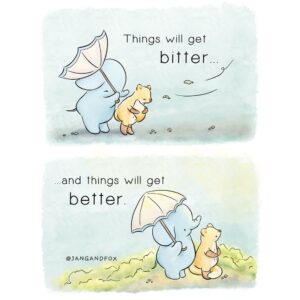
Image Courtesy: pride.kindness.sg










